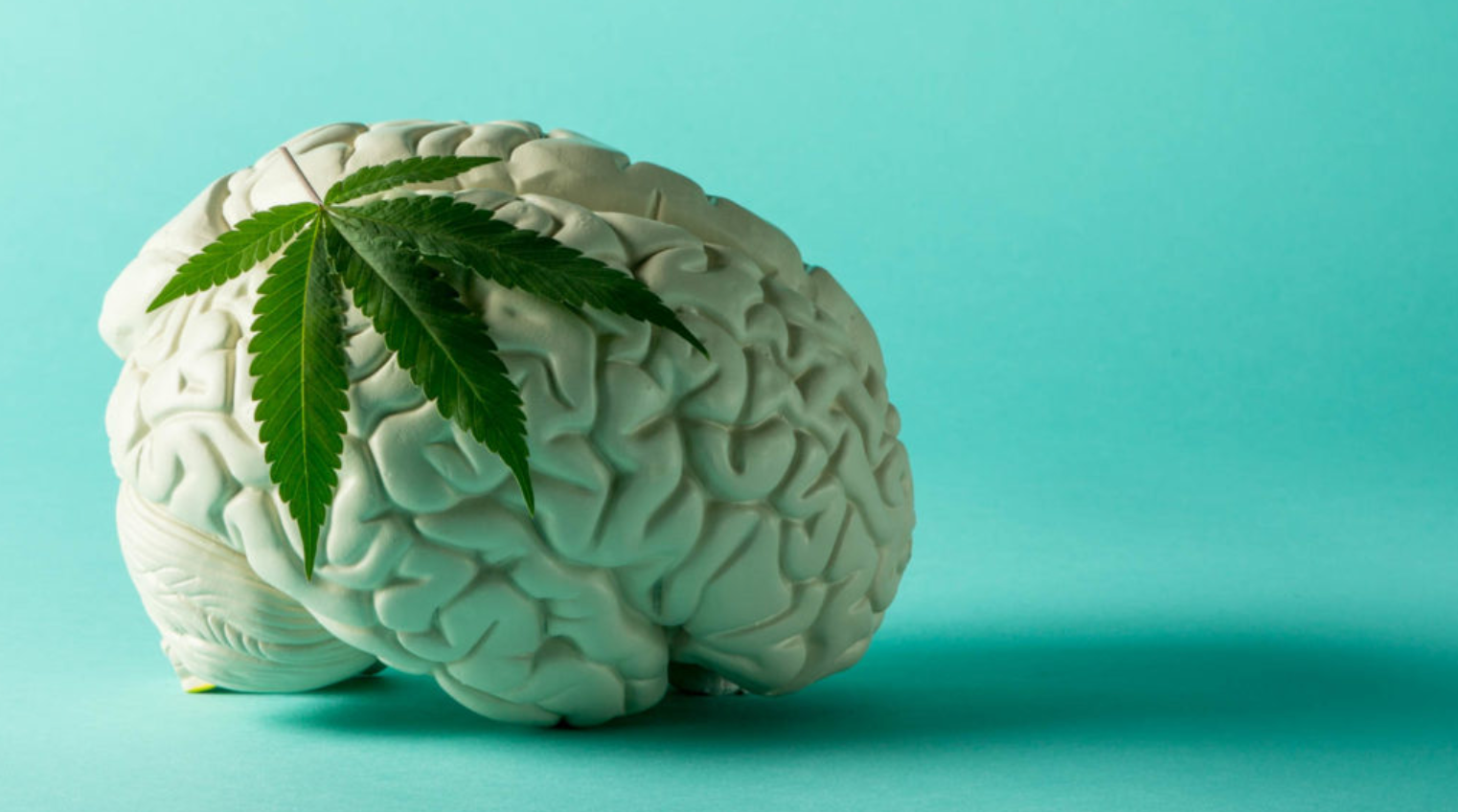
Cannabis and Brain Cells Myths Debunked
In recent years, the conversation around cannabis and its impact on brain health has ignited debates among health enthusiasts, cannabis users, and medical professionals alike. Does cannabis kill brain cells, or could it actually offer neuroprotective benefits?
This blog post will unravel the mysteries surrounding cannabis and brain health. Prepare to explore the latest cannabis research findings and hear insights from credible sources like Dr. Adie Rae, a neuroscientist and scientific adviser to Weedmaps. Whether you're a cannabis consumer, a medical professional, or simply curious about this topic, read on to discover the truth about cannabis and its effects on the brain, and explore the exciting future of this ancient plant in modern healthcare.
Understanding Cannabis and Brain Health
The impact of cannabis on brain health is a topic that has intrigued scientists and the general public for decades. Despite misconceptions, recent research has revealed surprising findings about how cannabis affects the brain. It's important to understand that results can vary based on frequency of use and the specific cannabinoids involved.
Dr. Adie Rae emphasizes that infrequent cannabis use may have neuroprotective effects, while the effects of regular use remain unclear and potentially negative. This distinction underscores the importance of examining how different usage patterns can influence brain health.
Synthetic cannabinoids like Spice and K2 have demonstrated neurotoxic effects, according to Rae. In contrast, plant-based cannabinoids, such as THC and CBD, seem to do the opposite, particularly in the short term. This information opens doors to further research into the potential protective properties of cannabis when used responsibly.
The Science Behind Cannabinoids and Neuroprotection
Cannabinoids are the compounds found in cannabis, and they interact with the brain in unique ways. Among them, CBD and CBG have drawn attention for their potential to promote brain health. These cannabinoids may trigger healthy cellular processes, such as antioxidation, which can protect brain cells from damage.
Neuroprotection is a key factor that makes cannabis and its derivatives appealing in the treatment of degenerative brain disorders like Parkinson's and Alzheimer's. Scientific studies highlight the therapeutic potential of cannabinoids in these contexts, furthering our understanding of their benefits.
The 2020 literature review published in Molecular Neurobiology supports the idea that cannabinoids like THC and CBD can be therapeutic for individuals with neurodegenerative diseases. This research provides a foundation for exploring cannabis as a viable treatment option for those seeking alternative therapies.
Cannabis Research Findings Worth Exploring
Research on cannabis is evolving rapidly, with new studies shedding light on its effects on brain health. One notable study conducted on mice in 2018, published in Neurobiology of Aging, found that low doses of THC may reverse age-related cognitive impairments. These positive effects lasted for several weeks, indicating potential applications for human health.
Dr. Adie Rae's insights underscore the need for continued research to unlock the full potential of cannabis in supporting brain health. While we have made strides in understanding its benefits, there is still much to learn about the complex interactions between cannabinoids and the brain.
Cannabis research is gaining momentum, with organizations like the American Healthy Alternatives Association (AHAA) leading the charge. By prioritizing rigorous scientific exploration, experts aim to answer critical questions about cannabis use and its effects on cognition.
Bridging the Gap Between Perception and Reality
Perceptions of cannabis have shifted significantly over time. Once viewed solely as a recreational drug, it is now recognized for its potential health benefits, including neuroprotection. However, misconceptions still persist, making it crucial for researchers and advocates to provide accurate information.
Education and awareness are key to bridging the gap between perception and reality. By dispelling myths about cannabis and brain health, we can empower individuals to make informed decisions about its use. This involves challenging outdated beliefs and focusing on evidence-based insights.
The cannabis community, including health enthusiasts and medical professionals, plays a vital role in promoting accurate information. By sharing research findings and raising awareness, we can shape a future where cannabis is appreciated for its holistic benefits.
Practical Tips for Responsible Cannabis Use
For those considering cannabis use, it's essential to approach it responsibly. Understanding the nuances of cannabis and brain health can guide informed decisions and promote positive experiences. Here are some practical tips for responsible cannabis consumption:
- Moderation is Key: Moderation is essential, as excessive use may lead to negative outcomes. Infrequent, mindful consumption is recommended for those seeking neuroprotective benefits.
- Educate Yourself: Stay informed about the latest research and consult trusted sources like Weedmaps Insights to understand the potential effects of cannabis on the brain.
- Choose Quality Products: Opt for high-quality, plant-based cannabinoids from reliable sources to ensure safety and efficacy.
By following these guidelines, individuals can enjoy the benefits of cannabis while minimizing potential risks to brain health.
Exploring the Future of Cannabis in Medicine
The future of cannabis in medicine holds promising possibilities. Continued research and innovation are paving the way for cannabis to become an integral part of modern healthcare. Its potential in treating neurodegenerative diseases and supporting overall brain health is captivating the attention of scientists worldwide.
Collaboration between researchers, medical professionals, and cannabis advocates is crucial for advancing our understanding of cannabis and its applications. By fostering partnerships and promoting open dialogue, we can accelerate progress and unlock new therapeutic avenues.
Individuals and organizations alike can contribute to this exciting frontier by staying engaged and supporting ongoing research efforts. Together, we can shape the future of cannabis in medicine and improve the quality of life for many.
Cannabis and CBD in Everyday Health Practices
Incorporating cannabis and CBD into everyday health practices can offer holistic benefits beyond brain health. From reducing stress and anxiety to enhancing physical well-being, these compounds have the potential to support overall wellness.
Health enthusiasts and cannabis lovers can explore various ways to integrate cannabis into their routines. Whether through CBD-infused products or mindful consumption, individuals can experience the positive impact of cannabinoids on their daily lives.
The wellness community plays a crucial role in advocating for responsible cannabis use and promoting its benefits. By sharing experiences and insights, individuals can inspire others to explore cannabis as a valuable tool for holistic well-being.
Cannabis Consumers as Advocates for Change
Cannabis consumers have the power to drive change and challenge existing norms. By becoming advocates for responsible use and informed decision-making, they can contribute to a more inclusive and educated society.
Engagement with organizations like the American Healthy Alternatives Association (AHAA) and participation in advocacy initiatives can amplify the voices of cannabis consumers. Together, we can work towards a future where cannabis is embraced for its positive contributions to health and well-being.
By leveraging collective action and advocating for accurate information, cannabis consumers can help dispel myths and foster a more informed public discourse.
Conclusion: Embracing the Potential of Cannabis
In conclusion, the question of whether cannabis kills brain cells is complex and nuanced. While misconceptions abound, current research suggests that plant-based cannabinoids may offer neuroprotective benefits when used responsibly.
By examining the latest cannabis research findings and insights from experts like Dr. Adie Rae, we can gain a deeper understanding of the potential therapeutic applications of cannabis in supporting brain health. The evolving landscape of cannabis in medicine presents exciting opportunities for further exploration and innovation.
For those interested in learning more, we encourage you to stay informed and engaged in the ongoing conversation surrounding cannabis and brain health. Together, we can continue to explore the potential of this ancient plant and advocate for its rightful place in modern healthcare.
Whether you're a health enthusiast, a medical professional, or a cannabis lover, your role in shaping the future of cannabis is invaluable. Let's unite in our commitment to education, advocacy, and collective responsibility for a healthier, more informed world.



